Kabul seeks JUI-S chief’s blessings for Taliban talks
Maulana Samiul Haq assures he will help with the peace process
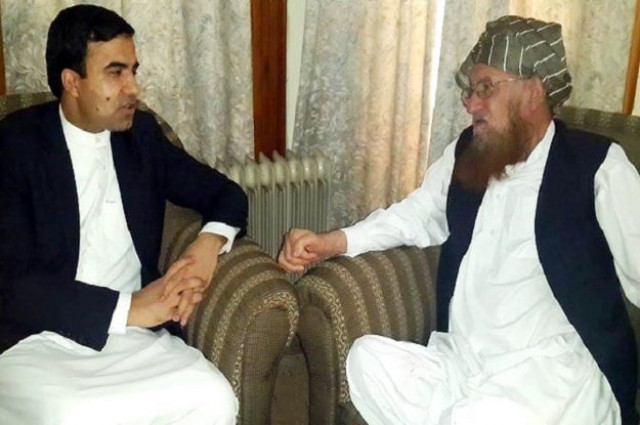
Maulana Samiul Haq assures he will help with the peace process. PHOTO: INP
The top diplomat of Afghanistan in Islamabad has requested an influential Pakistani cleric to give his blessing to his country’s nascent peace process with the Taliban. Afghan government officials and Taliban representatives had had a rare face-to-face meeting on July 7 in the popular tourist resort of Murree. They were scheduled to meet again on July 31, but the second round was called off following the confirmation of the death of Mullah Omar, the elusive Taliban supremo.
Afghan Ambassador Janan Musazai met Maulana Samiul Haq, the chief of his eponymous faction of Jamiat Ulema-e-Islam and chancellor of Darul Uloom Haqqania, at his residence in Akora Khattak, Nowshera on Saturday. Most senior cadres of the Afghan Taliban have studied at the Islamic seminary and a few days back Maulana Sami and several other Pakistani and Afghan Ulema had sworn allegiance to Mullah Akhtar Mansoor, the successor of Mullah Omar, at a function at the same seminary.

“There is an historic opportunity in the region, including Afghanistan and Pakistan, for peace, stability, and reconciliation and unity among Muslims and we should not lose this opportunity,” Ambassador Musazai said in a veiled reference to the Pakistan-brokered peace talks. “Besides efforts by the states and the governments, religious scholars, spiritual leaders, politicians and elders should also play their role for the establishment of peace and stability [in the region],” he added.
“It was courtesy call and the purpose was to enlist Maulana Samiul Haq’s support for the peace talks between the Afghan government and the Taliban,” Syed Muhammad Ibrahim Khel, the consul general of Afghanistan in Peshawar, told The Express Tribune. “It was the first meeting of any senior Afghan diplomat with Maulana Samiul Haq since the 9/11 tragedy.”
According to Ibrahim Khel, Maulana Sami and Ambassador Musazai had detailed discussions on the current situation in Afghanistan in their two-hour long meeting. “Maulana Samiul Haq has assured that he will play his role in putting the dialogue process back on track. And we are satisfied with his assurances,” he added.
A spokesperson for Darul Uloom Haqqania said Maulana Sami has agreed to help find a negotiated settlement to the conflict in Afghanistan. “Maulana sb also expressed his concern over the split in the Afghan Taliban which, he said, was harmful not only to the Afghans but also to the entire Muslim Ummah,” he added.

According to the spokesman, Maulana Sami told Ambassador Musazai that he had advised Taliban representatives in a meeting a couple of days back to shun their differences and unite. “He even offered to mediate and reconcile rival Taliban groups,” he added. “Maulana sb believes the Afghans could foil international conspiracies by forging unity in their ranks.”
He said Maulana Sami urged Afghan, Pakistani rulers and the Taliban to ‘demonstrate seriousness’ as Afghanistan has entered at a critical stage following the death of Mullah Omar. “All the three should first get rid of foreign forces as we cannot achieve any success in the presence of the foreign domination,” Maulana Sami said.
The cleric advised the Afghan ambassador to provide an “opportunity to the Taliban to unite as their unity will benefit not only Afghanistan but the whole region.”
Ambassador Musazai briefed Maulana Samiul Haq about Afghan government’s reconciliation policies which aim to bring all resistance groups into the mainstream. “The incumbent Afghan parliament is dominated by highly educated Islamic scholars and Ulema most of whom remained part of former Jihadi parties,” he said. “Pakistan and its Ulema can play a key role in the success of Kabul’s peace and reconciliation process.”
In the same vein, Ambassador Musazai requested Maulana Samiul Haq to come forward at this crucial stage when Islamabad and Kabul are facing similar threats and similar socio-economic problems.
Published in The Express Tribune, August 9th, 2015.

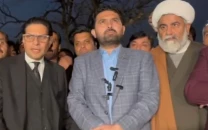
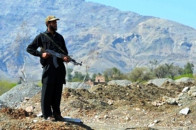

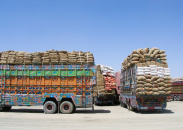
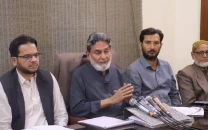
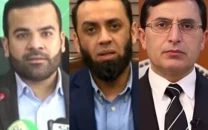












COMMENTS
Comments are moderated and generally will be posted if they are on-topic and not abusive.
For more information, please see our Comments FAQ